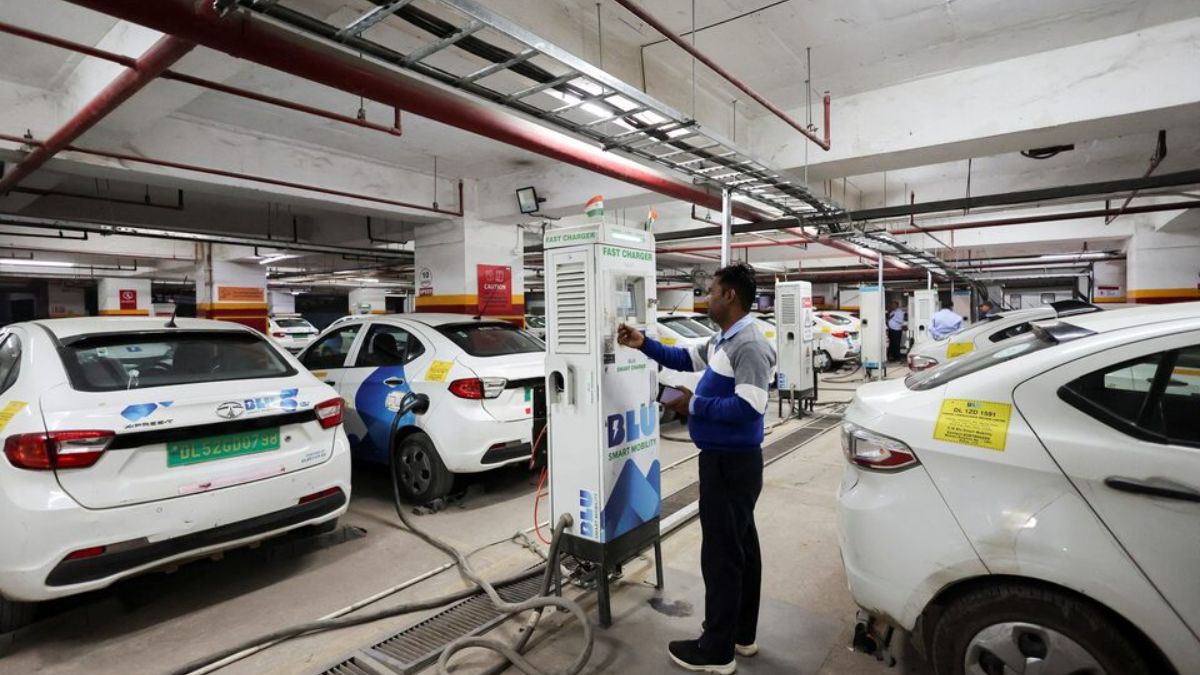- By JE Auto Desk
- Thu, 02 May 2024 02:57 PM (IST)
- Source:JND
Sustainability is now at the forefront of modern business practices. The Electric Vehicle (EV) industry too is moving in the same direction and actively embracing the principles of a circular economy. A circular economy aims to minimize waste and promote the continual use of resources by designing products with longevity in mind and encouraging the use of recyclable materials. In the context of the EV industry, this approach translates into designing vehicles and components that can be easily disassembled and recycled. For the same, a sustainable approach is being promoted, where materials are smartly reused at the end of their life cycle. As EV adoption continues to grow in the country, the circular economy model would ensure that resources are being utilized to their utmost capacity, ultimately benefiting all – the environment, the economy and the society.
EV manufacturers in the country are now implementing advanced lifecycle management practices that prioritize sustainability. Starting from the vehicle’s initial production stage to its end-of-life disposal, strategies are being put in place to maximize resource efficiency and minimize waste. Traditional manufacturing methods are being put to rest, and new-age EVs are being designed in a way that facilitates easy disassembly and recycling. EV makers are embracing a modular design approach, wherein components and systems of the vehicle can be easily removed and replaced at a later stage. This approach leads to greater flexibility when it comes to repairs, upgrades and adaptation of different vehicle parts. It also allows the components to be easily reused, which ultimately ensures a reduction in waste and the building of a more sustainable value chain. Interestingly, this drive towards sustainability has also been fuelling innovation in the development of more efficient technologies.
Recycling of EV batteries is another key pillar in the seamless transition towards a circular economy. These batteries are made up of valuable materials such as lithium, copper, cobalt and nickel, which are often extracted through harmful mining practices that contribute to carbon emissions. Moreover, improper disposal of these batteries at the end of their life can worsen the already pressing issue of e-waste, which can again harm the environment. The Indian government aims to achieve an EV sales penetration of 30 per cent for private cars, 70 per cent for commercial vehicles and 80 per cent for two and three-wheelers by the year 2030. Fingers crossed, if this mission is achieved, the Indian roads will be immensely crowded with EVs by 2030.
However, this also implies that tons of EV battery waste would begin to get generated by that time, and the precious materials inside those batteries would be at risk of getting wasted if the issue is not addressed promptly. According to data from the World Bank, the demand for key minerals like graphite, lithium, and cobalt is expected to surge by over 460% by 2050, mostly driven by EVs. Recycling batteries is a key step here, as it would ensure that these already scarce resources do not get depleted.
Fortunately, a positive change is underway. EV battery manufacturers have begun to invest in cutting-edge technologies to enhance energy efficiency, paving the way for more sustainable battery production. A closed-loop system is being established, wherein used batteries are collected, and disassembled, and components are either refurbished or valuable materials are recovered for reuse in new products. This innovative approach creates a circular economy for batteries which primarily revolves around recycling and reuse. In this economy, batteries, instead of ending up in landfills, become valuable resources, ready to serve other crucial purposes. Also, by doing this, a more resilient supply chain can be developed - one that is better equipped to withstand any unexpected disruptions.
Furthermore, EV manufacturers are making notable progress in the research and development of technologies to enhance the reuse and recycling of components, particularly batteries. However, what is truly required is a stronger emphasis on innovation to drive efficiency throughout the entire value chain. By embracing new technologies, such as those that enable precise tracking of the vehicles’ (and their components) life cycle, manufacturers can uncover newer, better opportunities for reuse. Additionally, technology can also play a crucial role in efficient waste management. Above said, the true shift towards a circular economy for EVs hinges on educating consumers and industry professionals about the importance and benefits of sustainable resource management. Increased awareness and a strong shift in the mindset can spark crucial changes, ultimately leading the way towards a more sustainable automotive industry.
(The above article is written by Ashwin Bhandari, iVOOMi Co-Founder and CEO. Jagran English does not represent the views expressed by the author.)
